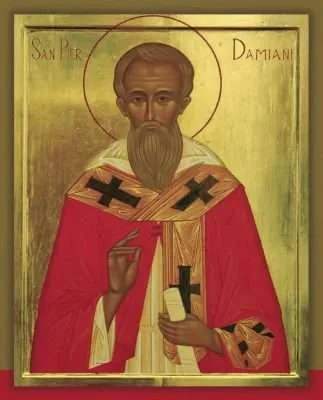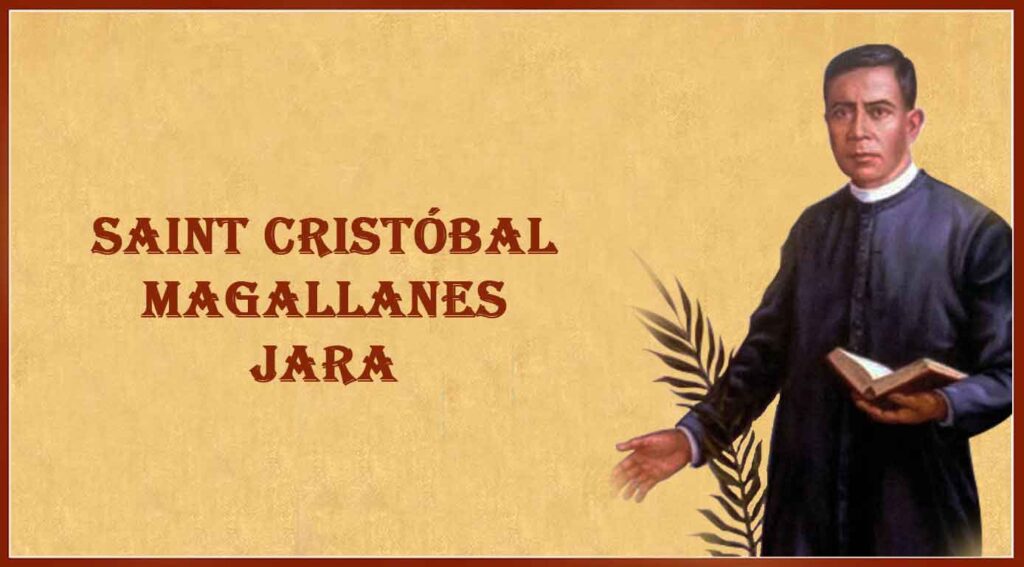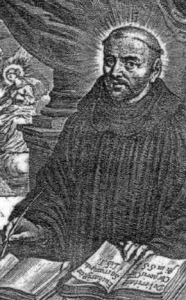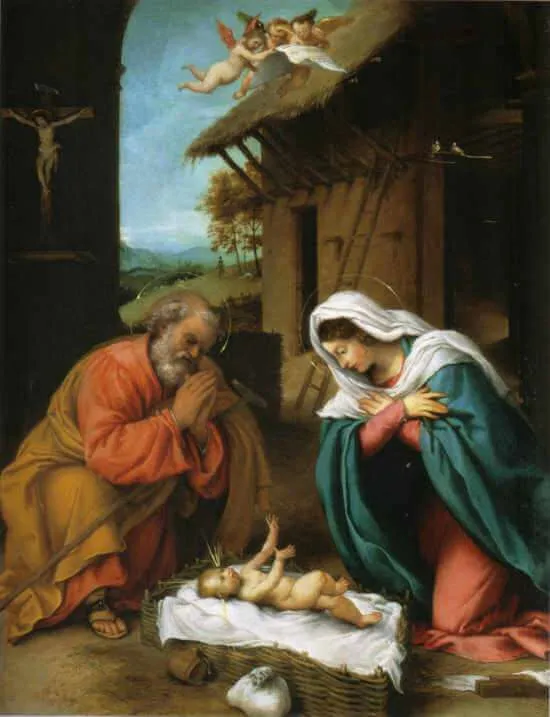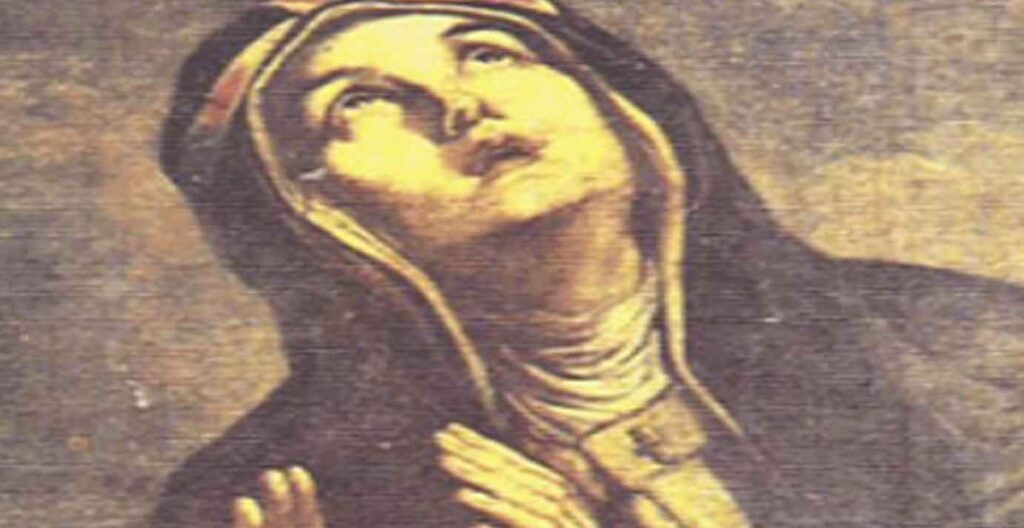Patron Saint of Faenza and Font-Avellano, Italy; Pre-Congregation canonization; Canonization confirmed and proclaimed a Doctor of the Church by Pope Leo XII in 1823
Orphan, laborer, student, monk, hermit, priest, theologian, teacher, writer, poet, ascetic, penitent, prior, reformer, bishop, cardinal, saint…these are but a few words to describe today’s courageous saint.
Peter was the youngest child born into a poor but noble family in Ravenna, Italy. His parents died when he was young, so he went to live with one of his older brothers who mistreated him and forced him to labor as a swineherd. Eventually, another brother, a priest from Ravenna named Father Damian, took him in and provided him with an excellent education in which he greatly excelled. Peter was so grateful to his priest brother that he added his brother’s name to his own, making him Peter Damian.
Upon the completion of his education, Peter Damian began to teach with much success. However, he soon found that the university setting was not for him, so he withdrew to a monastery in Fonte-Avellana for a forty-day retreat. Upon completing his retreat, he discerned a call to monastic life and received the habit.
As a monk, Peter Damian lived a secluded life of prayer and extreme penance. His penances were so severe that they affected his health more than once. Eventually, his intellectual gifts were used once again when he was asked to teach his fellow monks. For the next few years, he taught in his own and neighboring monasteries and also began to write. One of his first works was the Vita, or “Life” of Saint Romuald, a recently deceased monk from his monastery known for his exceptional holiness.
In 1043, at the age of thirty-five, Brother Peter Damian was named the prior of his monastery. He led the brothers with zeal and fidelity to their rule. He also began founding new hermitages in the surrounding villages.
At that time, Pope Benedict IX was a truly scandalous pope who had obtained the papacy through bribery and lived an immoral life. In 1045, the pope decided to leave the papacy to marry his cousin. Before doing so, he wrote to his godfather, Father John Gratian, for advice. Being a holy man, Father Gratian encouraged him to resign, which Benedict did, leaving the papacy to Father Gratian, who became Pope Gregory VI. Brother Peter Damian was overjoyed at the change and wrote to the new pope, encouraging him to tackle corruption and scandal within the Church.
In the years that followed, more than one pope called on Brother Peter Damian to help accomplish that very goal. He wrote many letters in an attempt to bring about reforms of the clergy, fought against simony (the selling of Church offices and spiritual favors), addressed sexual abuses, challenged the bishops, reformed monasteries, and gave a spectacular personal witness of holiness.
In 1057, Brother Damian was made the Cardinal-Bishop of Ostia by the pope, despite his attempts to turn down the position. As a new cardinal, he quickly challenged his brother cardinals and tried to weed out corruption. He would eventually return to his hermitage and resume his life of prayer, but his fervor in fighting against the evils of the time continued. Pope after pope called on him for help, even while other Church leaders opposed him.
In 1072, at the age of sixty-five after battling one corruption after another, Cardinal Peter Damian fell ill. After a week of illness in a monastery near his hometown, the cardinal died while the monks chanted around his bed.
Every age of the Church has different needs. In the eleventh century, the Church needed an unwavering and courageous voice for reform. Saint Peter Damian was that voice. Though his heart was most at home in his monastery doing penance and chanting the psalms, his body was actively eradicating the mold that had covered the Church. Through his valiant efforts, many parts of the Church began to radiate as the Bride of Christ once again.
Each of us is called to be a reformer in one way or another. First, we must seek to reform our own souls by eliminating sin through prayer, penance, and fidelity to God’s Law. From there, God will use us to extend His reform to others. Ponder any ways that you need to reform your own life, and then offer yourself to God’s service so that He can use you to weed out the evils you encounter in your daily life.
Source: https://mycatholic.life/saints/saints-of-the-liturgical-year/february-21-saint-peter-damian-bishop-and-doctor-of-the-church/


